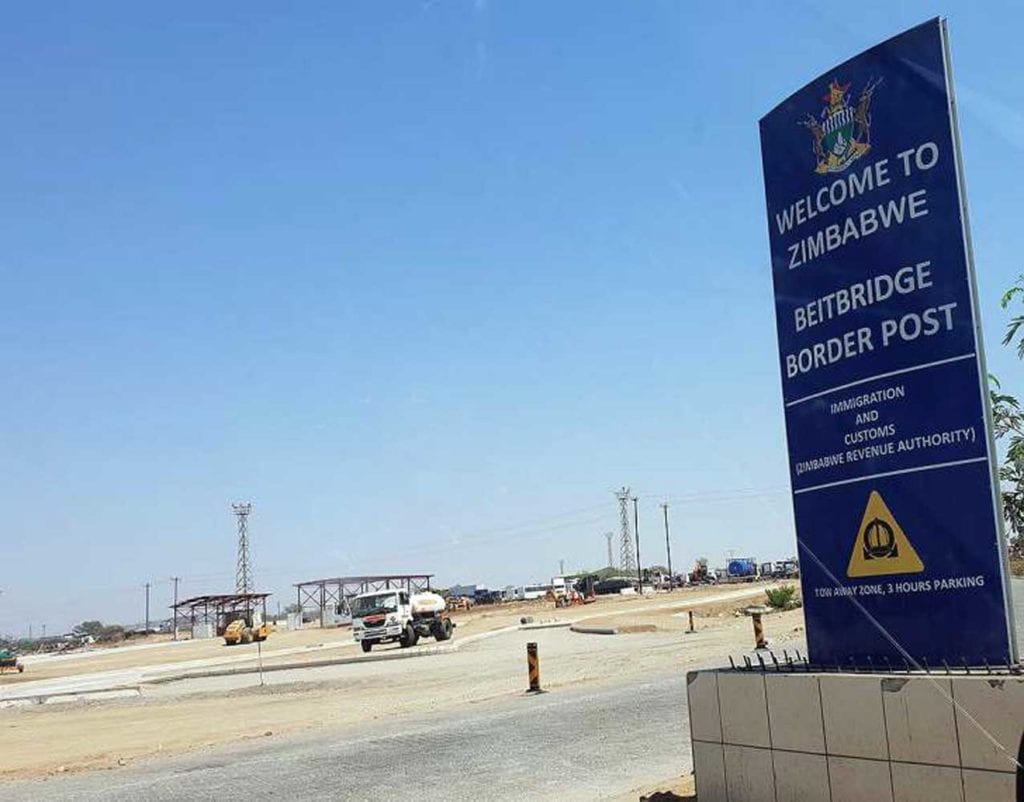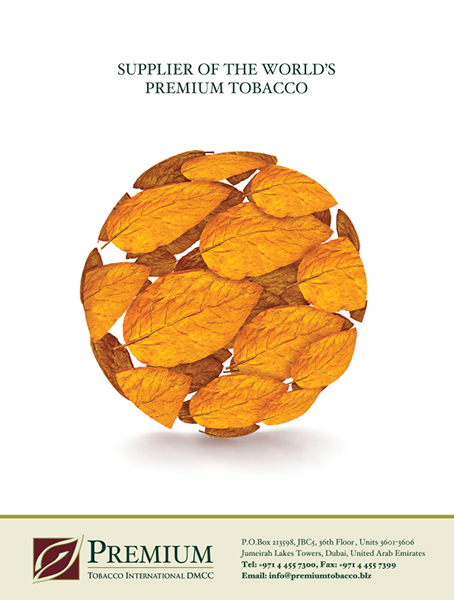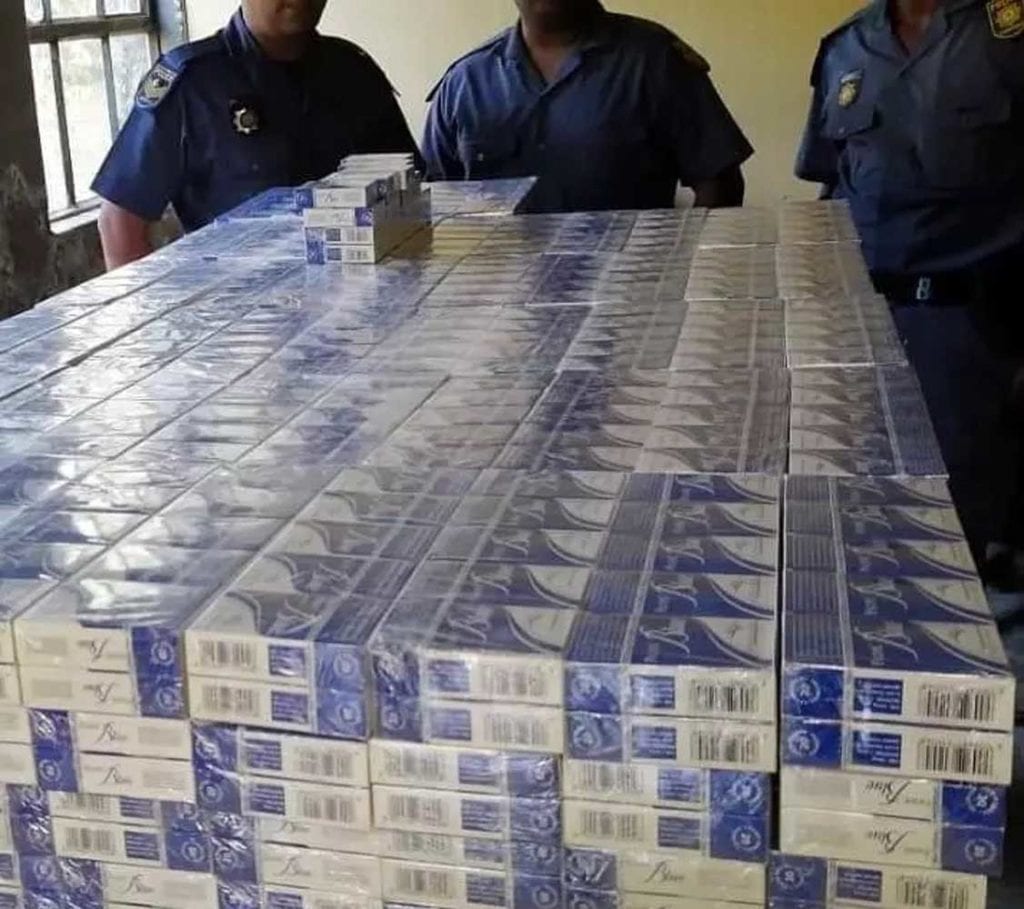
Cigarette smuggling thrives in southern Africa.
By Thulani Mpofu
On May 15, 2020, South African police in northern Limpopo Province near the border with Zimbabwe impounded four vehicles and cigarettes worth ZAR1.4 million ($83,530).
The drivers, transporting cigarettes smuggled from Zimbabwe, avoided arrest by bolting out of their vehicles and out-sprinting police.
A fortnight later, four South African men and a Zimbabwean woman were arrested in the same province after a high-speed chase while attempting to spirit 10,000 boxes, or 200,000 sticks, of cigarettes into South Africa. In the last two weeks of June, 30 people were arrested resulting in the confiscation of cigarettes worth ZAR4 million.
The consignments had been smuggled through the official border post at Beitbridge, or via some 200 illegal crossing points on the Limpopo River, which forms the border between the two southern African countries.
In Botswana on April 4, police in a northern district close to Zimbabwe arrested a Motswana and a Zimbabwean for smuggling 127 cartons of cigarettes into that country.
On April 16, three men were arrested near South Africa’s border with Mozambique while transporting 20,095 packs of cigarettes worth ZAR900,000. The contraband was coming from Mozambique.
“Cigarette smuggling is a big problem for us,” South Africa Police Service Limpopo Province spokesperson Brigadier Motlafela Mojapelo told Tobacco Reporter.
“We are on alert all the time and make arrests every day, but they are undeterred. I can tell you that since March we have arrested nationals of both countries numbering at least 100. What they tell us during investigations is that the crime pays for those who avoid arrest, but our message to them and would-be smugglers is that ultimately we will catch them.”

Trafficking of cigarettes from Zimbabwe into South Africa, the biggest economy in southern Africa and the most lucrative market for both licit and illicit cigarettes in the region, is rampant. Hundreds are arrested yearly for transporting the illegally imported tobacco into South Africa as well as Namibia and Botswana. Individuals and more organized cartels whose kingpins are rarely arrested are involved.
Apart from being the main destination of trafficked cigarettes from Zimbabwe, South Africa is consistently the biggest African importer of tobacco grown in its northern neighbor. For example, in 2018, South Africa spent $100.8 million importing 32.2 million kg of tobacco from Africa’s top growing nation and the globe’s fourth-biggest producer. In that year and as in other years, South Africa’s spending and volume of imports was second to China, which imported 59.1 million kg of the leaf, worth $449.7 million.
According to a report by the Atlantic Council of the United States, “The Illicit Tobacco Trade in Zimbabwe and South Africa: Impacts and Solutions,” released in March 2019, high taxes that South Africa, Namibia and Botswana charge on cigarette imports are the major factor discouraging legal importation of the product, encouraging smugglers to try their luck.
Members of the Southern Africa Customs Union (SACU)—South Africa, Namibia, Botswana, Eswatini and Lesotho—charge an average of ZAR16.66 in excise tax on a 20-pack of cigarettes. With a 15 percent value added tax, the total cost of the pack rises to about ZAR20. This suggests, according to an Atlantic Council study, any pack of cigarettes selling for less than the minimum collectable tax of around ZAR20 is likely smuggled or broadly illicit.
An Ipsos study whose findings were released in November 2018 established that Rudland & George cigarettes, manufactured by one of Zimbabwe’s largest tobacco-growing contractors, Gold Leaf Tobacco, had become the biggest-selling brand in South Africa overall, retailing at ZAR10 a pack.
The research estimated that illegal cigarettes accounted for 33 percent of all cigarettes sold in South Africa. The tobacco is especially prominent in the informal trade where they make up about 42 percent of that market. Due to their low prices, illegal cigarettes are an attractive bargain for smokers.
A separate research by the Tobacco Institute of South Africa (TISA) said 38 percent of the illicit sticks were smuggled from Zimbabwe, making that country pivotal for any illicit trade strategy.

The financial prejudice of smuggled tobacco to the economies of Zimbabwe and South Africa is not accurately known, said a Harare-based tax consultant, Tendai Mavima.
“There are no records for smuggled goods, so we cannot be specific in the economic impact,” he said.
“But it is known cigarettes are being smuggled every day. Both economies suffer because if cigarettes are smuggled, it means losses in income tax, value added tax, excise duty and other taxes applicable to cigarette trade. For Zimbabwe, illegal exports in cigarettes means loss of foreign currency.”
A Japan Tobacco study released in March 2018 suggests that South Africa lost about $1.5 billion in tax revenue to illicit trade between 2010 and 2016. BAT South Africa estimates that the illegal cigarette market cost South Africa “a conservative” ZAR8 billion every year.
In its March 2019 report, the Atlantic Council of the United States said although cigarettes are smuggled from Zimbabwe into Botswana, Namibia and Mozambique, the three countries have smaller and poorer populations, leaving South Africa as the most attractive market for cigarette smugglers keen on large profits.

Actors are not only small-time traders who use undesignated exit points along the Limpopo River but also some “untouchables” who are well connected to the ruling elites in Zimbabwe and South Africa. Small traders typically use small vehicles to carry the contraband, but the “untouchables” carry theirs in large trucks that pass through Beitbridge Border Post where some officials are bribed to wave the vehicles across the border.
“A former smuggler claims that one of these cigarette-smuggling cartels involves politicians in the highest levels of government from both Zimbabwe and South Africa but would not divulge names,” the report says.
“This cartel is said to operate a smuggling scheme that runs from Harare to Durban. Huge trucks are used to smuggle the cigarettes from their loading points in Harare through formal border crossing points and onwards to their destination. These trucks are not stopped or searched on the Zimbabwean side of the border. The cigarette brands that are most frequently smuggled are Remington Gold and Pacific Blue, both owned by Savanna Tobacco [now known as Pacific Cigarette Company]. Beitbridge border post is a major point of entry.”
In late March 2020, South Africa banned tobacco and alcohol sales, saying consumption of both increased the risk of spread of Covid-19. The Fair Trade Independent Tobacco Association, an industry lobby group in that country, argued in a statement that the ban only worsened the black market and the smuggling of cigarettes.
Gift Mugano, a researcher at South Africa’s Nelson Mandela University, told Tobacco Reporter that individual smugglers and large companies are taking advantage of porous borders in southern Africa and poor government monitoring of their tobacco value chains. Countries, he said, lose much money in the forms of import and export taxes, excise duty and value added tax.
“Our borders in the region are porous,” he said.
“For example, there is no fence separating Zimbabwe’s border with Mozambique, the same for the border between Zimbabwe and Botswana. People, some of them smugglers, just walk or drive across. Even the formal border posts are porous because officials can be bribed.”
Echoing the Atlantic Council report, a World Bank study, “Confronting Illicit Tobacco Trade: A Global Review of Country Experiences,” which focuses on SACU, expresses concern over criminal enterprises’ close ties to leading political figures in South Africa.
“Recently, a notorious cigarette smuggler’s lavish birthday party is reported to have been attended by high-profile policemen and politicians,” said the report released in January 2019.
“Similarly, multiple reports allege that a leading cigarette smuggler met with South Africa’s ex-president to secure a votes-for-protection agreement. All future policy and enforcement measures must reckon with the reality that, in this region, the tobacco industry is disproportionately powerful.”
The paper says government agencies in the SACU region have had little impact on illicit tobacco trade because of lack of focus, priority and resources allocated to tobacco regulation and to excise goods in general. Furthermore, they are unable to effectively secure tobacco supply chains at key points especially at production, shipment and on the retail segment. Some law enforcement agencies, the document adds, do not have nonintrusive inspection assets, such as scanners, to detect undeclared goods.
“Tobacco is like gold,” Mugano said.
“Many find it profitable to smuggle both commodities within the region and millions [of dollars] are involved. Like gold, cigarette smuggling is done by syndicates involving big companies. Those money-mongers are connected to figures in high places politically. Because of that, containing smuggling will be difficult.”
In her book Dirty Tobacco: Spies, Lies and Mega-Profits, published in June 2020, Telita Snyckers, a South African author and a tax and customs lawyer, argues that some tobacco companies smuggle their own product to evade tax. Illegally trafficked cigarettes, the book adds, are potentially more profitable than cocaine, heroin, marijuana and guns.
“The industry—even licensed, bigger players—has a long and consistent history of fines, felonies and infringements, spanning decades, across the globe,” the book reads in part.
“There is ample proof that the tobacco industry incorporated smuggling and other tax and duty evasion measures as an explicit part of its business strategy,” writes Snyckers.












